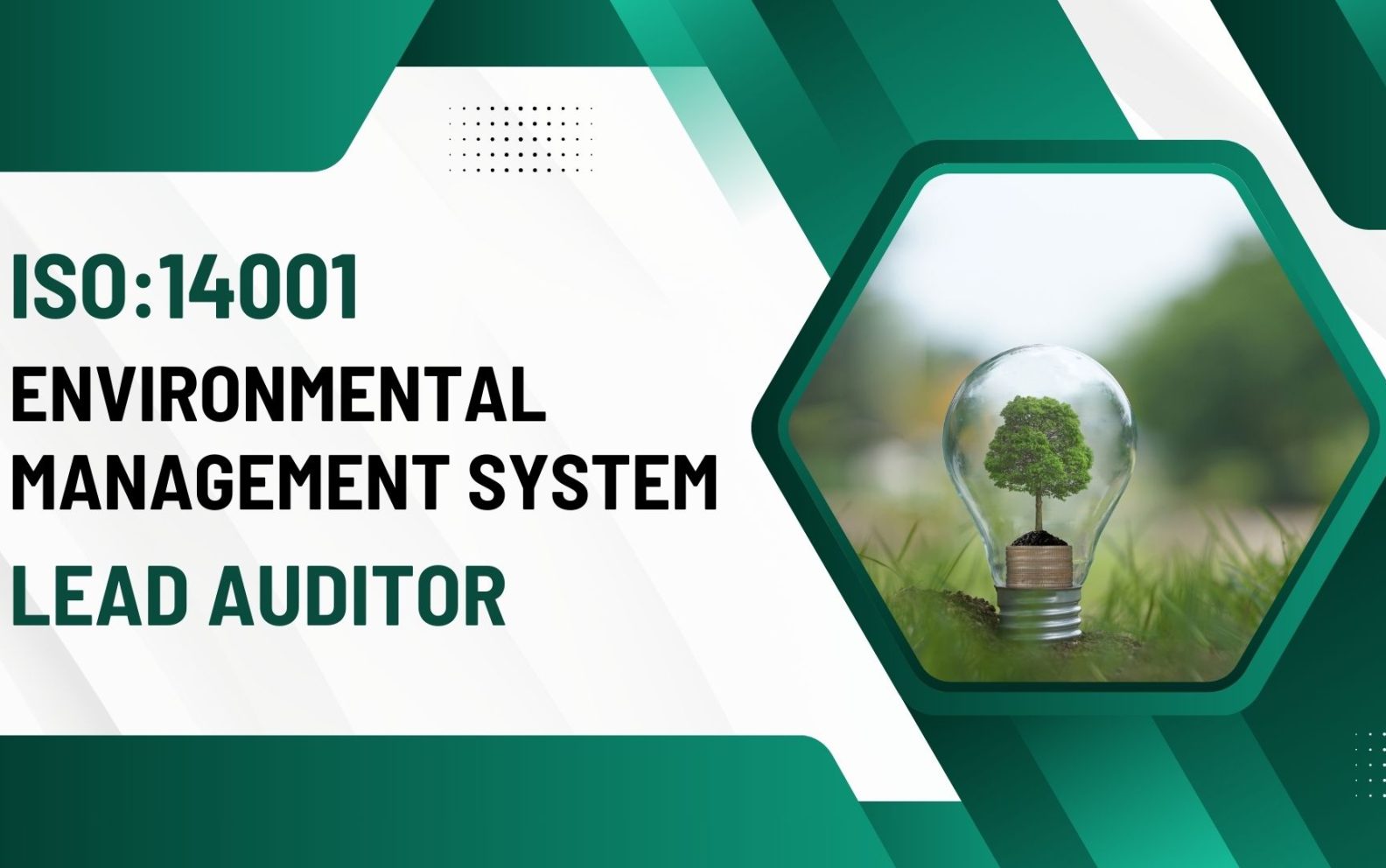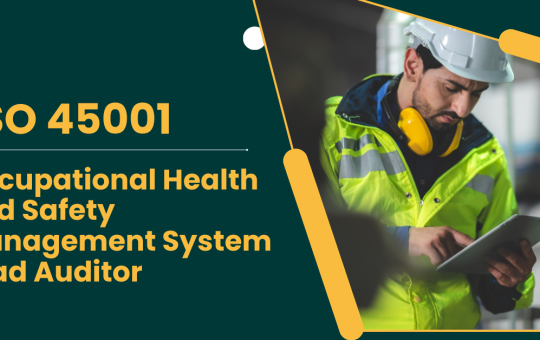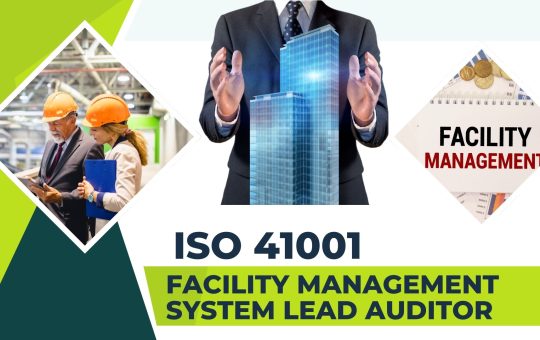
ISO 14001 Environmental Management System Lead Auditor
- Professional Recognition: Achieve a globally recognized certification that validates your skills.
- Enhanced Expertise: Learn advanced auditing techniques to assess EMS effectiveness.
- Environmental Stewardship: Play a pivotal role in driving sustainable practices.
- Career Advancement: Open up opportunities for leadership roles in environmental management.
- Regulatory Compliance: Help organizations meet legal and environmental obligations effectively.
- Understand the framework and requirements of the ISO 14001 standard.
- Develop the ability to plan, execute, and report on EMS audits.
- Gain skills in identifying and analyzing environmental risks and impacts.
- Learn how to document non-conformities and recommend practical improvements.
- Acquire leadership techniques for managing audit teams and engaging stakeholders.
- Introduction to Environmental Management
- Overview of ISO 14001 and its significance.
- Core principles of environmental sustainability and management.
- Understanding Environmental Aspects and Impacts
- Identifying and assessing environmental aspects.
- Managing risks and opportunities for improved performance.
- Audit Planning and Preparation
- Developing detailed audit objectives and scopes.
- Preparing effective audit checklists and resource plans.
- Audit Execution and Evidence Gathering
- Conducting site visits and stakeholder interviews.
- Collecting and evaluating objective evidence against ISO 14001.
- Non-Conformity Management
- Recording and categorizing non-conformities.
- Providing actionable recommendations for correction and improvement.
- Audit Reporting and Communication
- Preparing concise, comprehensive audit reports.
- Communicating findings and recommendations clearly to all stakeholders.
- Driving Continuous Environmental Improvement
- Leveraging audit results for better sustainability practices.
- Supporting organizations in achieving environmental objectives.
- Environmental Lead Auditor: Perform EMS audits for certification bodies or private organizations.
- Sustainability Manager: Oversee and enhance environmental sustainability strategies.
- Environmental Consultant: Guide companies in achieving compliance and operational excellence.
- Internal EMS Auditor: Ensure internal processes meet environmental management standards.
- Training Facilitator: Educate others on ISO 14001 requirements and audit methodologies.
Study Units
- Introduction to Environmental Management
- Overview of ISO 14001 and its significance.
- Core principles of environmental sustainability and management.
- Understanding Environmental Aspects and Impacts
- Identifying and assessing environmental aspects.
- Managing risks and opportunities for improved performance.
- Audit Planning and Preparation
- Developing detailed audit objectives and scopes.
- Preparing effective audit checklists and resource plans.
- Audit Execution and Evidence Gathering
- Conducting site visits and stakeholder interviews.
- Collecting and evaluating objective evidence against ISO 14001.
- Non-Conformity Management
- Recording and categorizing non-conformities.
- Providing actionable recommendations for correction and improvement.
- Audit Reporting and Communication
- Preparing concise, comprehensive audit reports.
- Communicating findings and recommendations clearly to all stakeholders.
- Driving Continuous Environmental Improvement
- Leveraging audit results for better sustainability practices.
- Supporting organizations in achieving environmental objectives.
Upon successful completion of the ISO 14001: EMS Lead Auditor course, participants will be able to demonstrate the following professional competencies:
Audit Leadership:
Lead ISO 14001 environmental management system audits, from planning to reporting, in accordance with international auditing principles.Environmental Risk Assessment:
Identify, assess, and evaluate environmental aspects, impacts, and risks affecting organizational performance.Regulatory and Standard Compliance:
Assess conformance with ISO 14001 requirements and relevant environmental legislation or regulatory obligations.Corrective and Preventive Action Management:
Identify non-conformities, conduct root-cause analysis, and recommend effective corrective and preventive actions.Sustainability Integration:
Promote environmental sustainability and continuous improvement within the organization through audit findings and recommendations.Communication and Reporting:
Prepare clear, structured, and actionable audit reports, effectively communicating key outcomes to stakeholders and leadership teams.System Improvement and Monitoring:
Evaluate environmental performance indicators and support the development of improvement programs for ongoing compliance and sustainability.Integrated Systems Approach:
Coordinate environmental audits alongside other management systems (ISO 9001, ISO 45001, ISO 50001) for unified operational excellence.
This course is ideal for professionals who aim to lead or participate in environmental management system audits in alignment with ISO 14001 standards. It is particularly designed for:
Environmental Managers and Officers: Seeking to enhance their auditing expertise and promote sustainable practices.
Health, Safety, and Environment (HSE) Professionals: Aiming to integrate environmental management with occupational health and safety systems.
Internal and External Auditors: Looking to qualify as ISO 14001 Lead Auditors and conduct third-party or certification audits.
Compliance and Sustainability Specialists: Responsible for ensuring environmental compliance and improving organizational sustainability performance.
Quality and Operations Managers: Interested in integrating ISO 14001 with ISO 9001, ISO 45001, or ISO 50001 management systems.
Consultants and Advisors: Offering guidance on environmental compliance, risk management, and sustainability strategies.
Professionals Seeking Career Growth: Individuals aspiring to leadership roles in environmental auditing, sustainability consulting, or compliance management.
Our assessment process is designed to ensure every learner achieves the required level of knowledge, skills, and understanding outlined in each course unit.
Purpose of Assessment
Assessment helps measure how well a learner has met the learning outcomes. It ensures consistency, quality, and fairness across all learners.
What Learners Need to Do
Learners must provide clear evidence that shows they have met all the learning outcomes and assessment criteria for each unit. This evidence can take different forms depending on the course and type of learning.
Types of Acceptable Evidence
Assignments, reports, or projects
Worksheets or written tasks
Portfolios of practical work
Answers to oral or written questions
Test or exam papers
Understanding the Structure
Learning outcomes explain what learners should know, understand, or be able to do.
Assessment criteria set the standard learners must meet to achieve each learning outcome.
Assessment Guidelines
All assessment must be authentic, current, and relevant to the unit.
Evidence must match each assessment criterion clearly.
Plagiarism or copied work is not accepted.
All learners must complete assessments within the given timelines.
Where applicable, assessments may be reviewed or verified by internal or external quality assurers.
Full learning outcomes and assessment criteria for each qualification are available from page 8 of the course handbook.
Top Courses
Related Courses
Let's Get in touch
Deleting Course Review
Course Access
This course is password protected. To access it please enter your password below:



